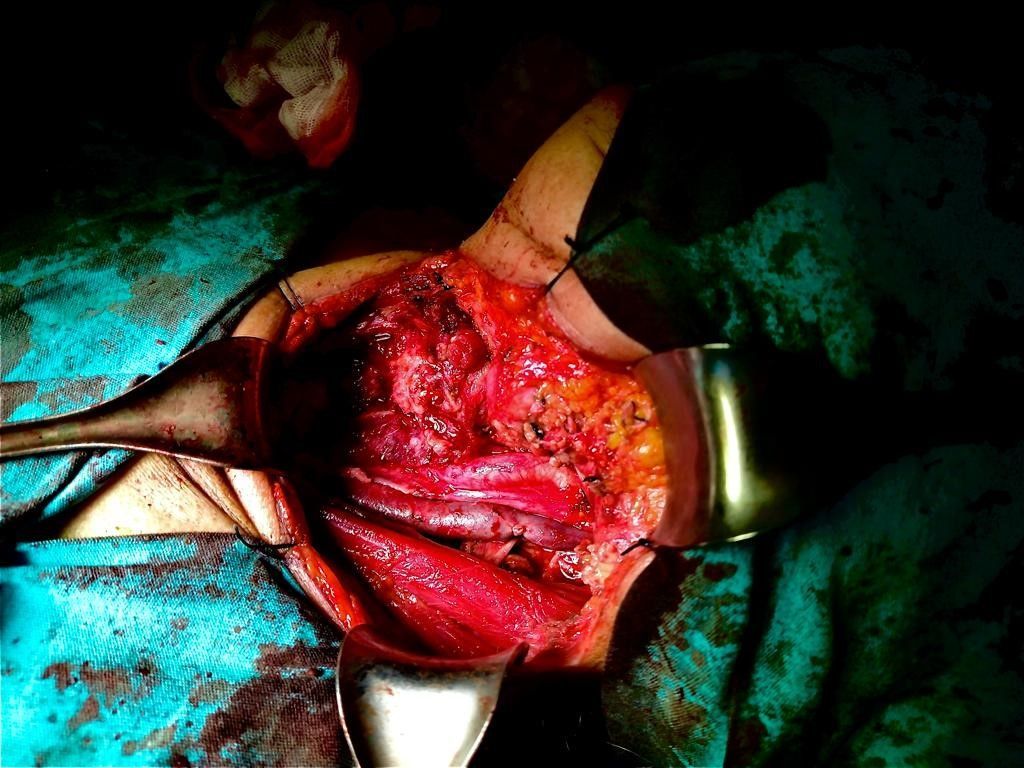Treatment of Thyroid Cancer:
Outpatient Approach for Selective Neck Dissections, Minimally Invasive Thyroidectomy, and Total Thyroidectomy
Diagnosis and Treatment of Patients with Thyroid Cancer: Head and Neck Surgeon Dr. Rafael Vazquez
Thyroid cancer is a condition that affects the thyroid gland, a small butterfly-shaped organ located in the front of the neck. With advancements in medical techniques and technology, the treatment of thyroid cancer has evolved, allowing for outpatient procedures that minimize hospital stays and promote a faster recovery. In this article, we will explore the outpatient approach for selective neck dissections, minimally invasive thyroidectomy, and total thyroidectomy.
Selective Neck Dissections:
In cases where thyroid cancer has spread to the lymph nodes in the neck, selective neck dissections may be recommended. This procedure involves the removal of only the affected lymph nodes, while preserving healthy tissue. Selective neck dissections can often be performed on an outpatient basis, allowing patients to return home on the same day. The procedure is typically performed under general anesthesia, and the surgeon makes small incisions in the neck to access and remove the affected lymph nodes. After the procedure, patients are monitored for a short period and can usually resume their regular activities within a few days.
Minimally Invasive Thyroidectomy:
Minimally invasive thyroidectomy is a surgical technique used to remove the thyroid gland or a portion of it through small incisions in the neck. This approach offers several advantages, including reduced scarring, less postoperative pain, and a faster recovery compared to traditional open surgery. The procedure is typically performed under general anesthesia, and specialized instruments and a high-definition camera are used to guide the surgeon during the operation. Minimally invasive thyroidectomy is often performed on an outpatient basis, allowing patients to return home the same day or with a short hospital stay. After the procedure, patients may experience minimal discomfort and can usually resume their normal activities within a week or two.
Total Thyroidectomy:
In cases where thyroid cancer involves the entire thyroid gland or has a higher risk of recurrence, a total thyroidectomy may be recommended. Total thyroidectomy is the complete removal of the thyroid gland and is usually performed under general anesthesia. While traditionally total thyroidectomy required a hospital stay, advancements in surgical techniques have made it possible to perform this procedure on an outpatient basis in selected cases. The surgeon makes a small incision in the neck and carefully removes the entire thyroid gland. After the procedure, patients are monitored for a short period to ensure proper recovery before being discharged. Recovery time can vary depending on individual factors, but most patients can expect to resume normal activities within a few weeks.
It is important to note that the suitability of outpatient treatment for thyroid cancer depends on various factors, including the stage and characteristics of the cancer, the patient's overall health, and the surgeon's recommendation. Each patient's case is unique, and the treatment plan will be tailored to their specific needs.

Call now and reserve your appointment.
Together, you and your care team will decide what Treatment is better for you.
Outpatient approaches for selective neck dissections, minimally invasive thyroidectomy, and total thyroidectomy have revolutionized the treatment of thyroid cancer. These techniques offer numerous benefits, including shorter hospital stays, faster recovery times, and minimal scarring. However, it is crucial for patients to consult with a qualified medical professional to determine the most appropriate treatment approach based on their specific condition. The goal is to provide effective and personalized care while ensuring the best possible outcomes for patients with thyroid cancer.
suscríbase a nuestro Newsletter
Le responderemos tan pronto como sea posible.
Inténtelo de nuevo más tarde.
Horario de Trabajo
- Lun, Vie
- -
- Mar - Jueves
- -
- Sábado
- -
- Domingo
- Cerrado
Aceptamos las siguientes formas de pago:
AMEX
Cheque
Depósito
Efectivo
Mastercard
Paypal
Transferencia
Vales
Visa
Oxxo
Tarjeta de Crédito
Tarjeta de Débito
SPEI
Claro pay
Sansung pay
CoDi
Apple pay
Baz
Mercado pago
Seven Eleven
Carnet
Engage ---
Nombre:
RAFAEL SEBASTIÁN VÁZQUEZ RENTERÍA
Número de Cédula:
09662555
Profesión:
LICENCIATURA COMO MÉDICO CIRUJANO
Institución:
UNIVERSIDAD DE GUANAJUATO
Número de Cédula:
11811613
Profesión:
ESPECIALIDAD EN MEDICINA
(CIRUGÍA GENERAL)
Institución:
UNIVERSIDAD NACIONAL
AUTÓNOMA DE MÉXICO
Número de Cédula:
12776988
Profesión:
ESPECIALIDAD EN MEDICINA CIRUGÍA ONCOLÓGICA (ADULTOS)
Institución:
UNIVERSIDAD NACIONAL
AUTÓNOMA DE MÉXICO
